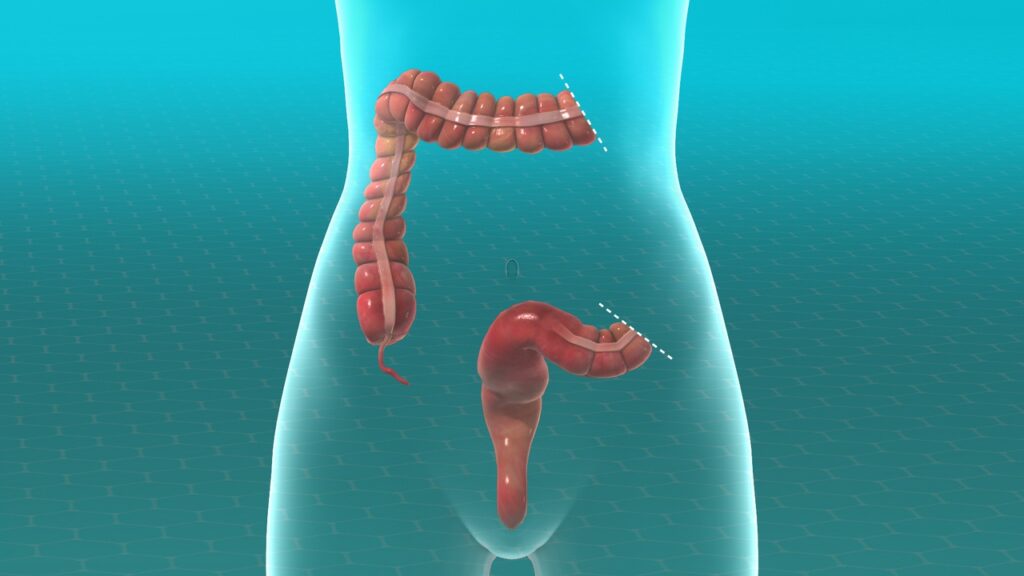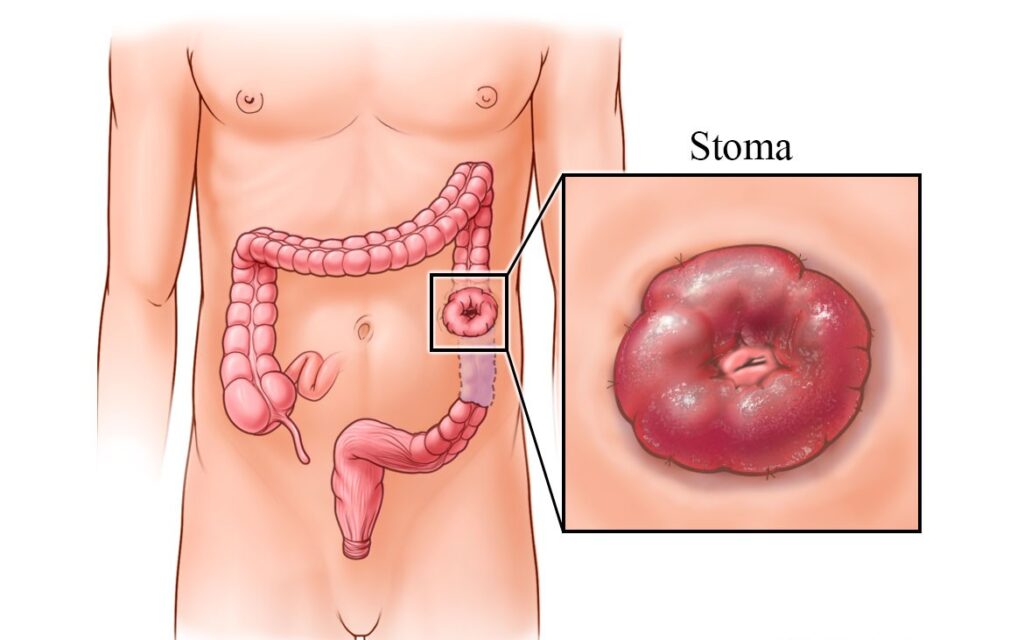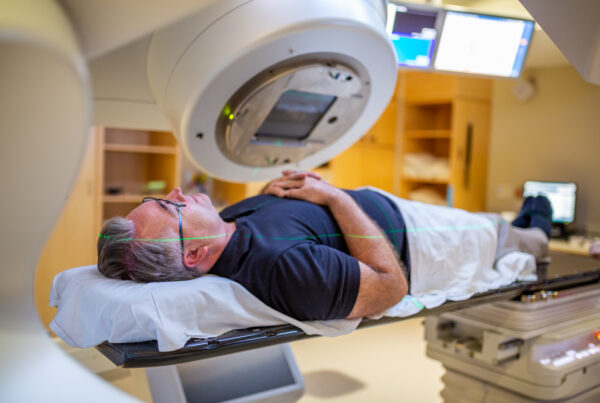There is no doubt that the colon, the final part of the large intestine, plays a vital role in digestion, water absorption, and stool formation.
However, in some cases, the colon can be affected by serious and chronic diseases that threaten the patient’s health and life, such as malignant tumors, severe inflammation, and obstructions, which do not respond to medication.
Therefore, colectomy surgery stands out as a radical and effective solution, and sometimes a lifeline, to remove the affected part and restore the normal functions of the digestive system as much as possible.
The importance of this operation is not limited to saving lives, but also extends to significantly improving the patient’s quality of life and alleviating their suffering from painful and persistent symptoms.
The patient’s strict adherence to these instructions is crucial for their safety and the success of the surgery.
Hence, the medical team at Liva Hospital in Turkey helps provide the best possible care for patients, from preparation to full recovery.

Why Colectomy?
Colectomy is a major surgical procedure and is only resorted to after a careful evaluation of the condition and determining that the expected benefits outweigh the potential risks.
The most common reasons that necessitate this surgical intervention are often advanced medical conditions or those that cannot be controlled by other means.
At the forefront of these reasons is colorectal cancer, where surgery is the primary and most effective treatment in the early and intermediate stages of the disease, aiming to completely remove the tumor with a safe margin of healthy tissue and nearby lymph nodes to prevent its spread.
Chronic inflammatory bowel diseases such as Crohn’s disease and ulcerative colitis, which cause severe pain, bleeding, and weight loss, may require removal of part or all of the colon when medications fail to control inflammation or serious complications such as perforation or severe bleeding occur.
Other conditions that necessitate colectomy include: complicated diverticulitis and its recurrent inflammation, the presence of a large number of benign tumors (polyps) that carry the risk of transforming into cancerous cells, and acute bowel obstruction.
Types of Colectomy Surgery
The scope of colectomy surgery varies depending on the affected part of the colon.
For each medical condition, the surgeon makes the appropriate decision to preserve as much healthy colon as possible. There are several main types of this operation:
- Partial Colectomy: This is the most common procedure, where only a part of the colon is removed. It is also known as hemicolectomy, such as right or left colectomy, and is most suitable for colon cancer cases that are confined to a specific part.
- Total Colectomy: This procedure is performed when the entire colon needs to be removed. It is a treatment option for diseases such as advanced ulcerative colitis or familial adenomatous polyposis, where the entire colon is at risk of developing cancer.
- Proctocolectomy: This type is the most comprehensive, involving the removal of both the colon and the rectum. This is often followed by the creation of an internal pouch using the small intestine to enable normal defecation, or the creation of a temporary or permanent external ostomy.
Preparing for Colectomy Surgery
Preparation for colectomy is an integral part of its success; it reduces risks and improves recovery outcomes.
Days before the operation, the medical team guides the patient through specific steps.
This phase usually begins with a comprehensive assessment of the patient’s general health, including blood tests, electrocardiogram (ECG), and chest X-rays, to ensure their ability to tolerate anesthesia and surgery.
One of the most important preparation steps is bowel prep, where the patient takes special solutions to completely empty the colon of stool, which reduces the risk of infection after surgery.
The patient is also given instructions on fasting for a certain period before the operation and may be asked to stop certain medications that could cause bleeding, such as blood thinners. In some cases, doctors may prescribe specific antibiotics to reduce the amount of bacteria in the intestines.
Advanced Surgical Techniques for Colectomy
Colon surgery has witnessed tremendous advancements over the past two decades, making it less invasive and safer.
While open surgery remains a necessary option in some complex cases, such as large tumors or severe adhesions, minimally invasive surgery has become the gold standard for many conditions. These techniques include:
- Laparoscopic Colectomy: In this procedure, several small incisions are made in the abdomen to insert a video camera and precise surgical instruments, allowing the surgeon to remove the affected part of the colon without the need for a large incision.
This method reduces post-operative pain, speeds up recovery, and shortens hospital stay. - Robotic Colectomy: This technique represents a qualitative leap in surgical precision. The surgeon uses a robotic system to control precise arms and surgical instruments from a control console.
The robotic system provides magnified 3D vision and superior maneuverability, allowing the surgeon to perform the operation with extreme precision, especially in tight and sensitive areas such as the pelvis.
Recent studies indicate that robotic surgery may lead to better outcomes in terms of reduced bleeding, fewer complications, and faster return to daily activities.
These advanced techniques are available in many international medical centers, including Liva Hospital in Turkey, where they are used to provide advanced patient care.
Post-Surgical Care and Recovery
Attention to post-surgical care is as important as the operation itself. Immediately after the operation, the patient is transferred to the recovery room for close monitoring of vital signs.
The recovery phase begins in the hospital, where the focus is on effective pain management, wound monitoring, and encouraging early mobilization to prevent complications such as blood clots.
In the first few days, a liquid diet is started, then gradually transitioned to soft foods, while monitoring the digestive system’s response.
Some patients may experience temporary changes in bowel habits, such as diarrhea or constipation, which is normal as the digestive system adapts to the new situation.
After discharge from the hospital, the patient is provided with detailed instructions on wound care, permissible physical activity, appropriate diet, and follow-up appointments.
Psychological support plays a significant role at this stage, helping the patient overcome any emotional or physical challenges they may face.
Full recovery may take a few weeks to several months and depends largely on the type of operation, the patient’s condition, and their adherence to the doctor’s instructions.

Conclusion
In conclusion, colectomy is a complex and highly important surgical procedure for treating many diseases that threaten the colon.
From fighting colon cancer and saving lives to alleviating suffering from chronic diseases, this operation represents a crucial step towards restoring health and well-being.
Thanks to tremendous medical advancements in surgical techniques, operations have become safer and more effective, with shorter recovery periods.
The patient’s understanding of all aspects of the operation, from preparation to recovery, plays a key role in achieving the best results.
Despite the challenges, adherence to treatment, regular follow-up, and psychological support give patients renewed hope and a real chance to return to a normal and active life.
With the advent of modern techniques, laparoscopic and robotic surgeries have provided better results with faster recovery.
This enhances the position of Liva Hospital in Turkey as a reliable destination, combining global expertise and quality in integrated care.
Frequently Asked Questions
How long does a colectomy operation take?
The duration of the operation varies depending on its type and the patient’s condition, but it usually takes between two to four hours.
Can one live a normal life after colectomy?
Yes, the patient can return to a normal life after full recovery. There may be a change in the frequency or nature of bowel movements, but these changes can be managed with an appropriate diet.
Will there be an ostomy (bag) after the operation?
Not necessarily. An ostomy (colostomy or ileostomy) is created only in certain cases, such as the need to give the colon time to heal, or in the case of complete rectal removal. In many cases, the intestines are reconnected directly.
What foods should be avoided after the operation?
Initially, it is recommended to avoid high-fiber foods, such as raw vegetables and fruits, whole grains, and gas-producing foods like legumes. Gradual return to a normal diet is based on the doctor’s instructions.
What is the success rate of colectomy?
The success rate varies based on the reason for the operation and the patient’s condition. In cases of early-detected colon cancer, the cure rate can be over 90%.
When can I return to work after the operation?
Returning to work depends on the type of work and the type of surgery. Those who underwent laparoscopic surgery may return within a few weeks, while those who underwent open surgery may need a longer period, up to 6-8 weeks.



